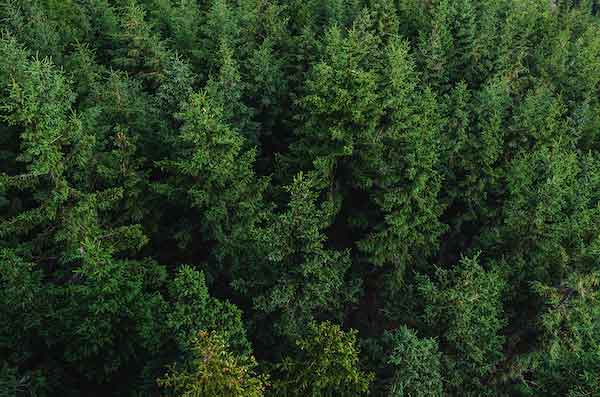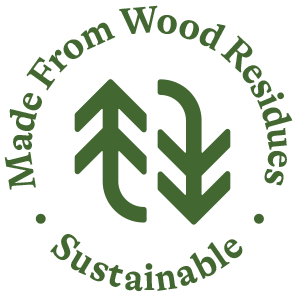Article
How Azwood® makes consistent, quality compost
Learn why using quality compost matters and how it can be a game-changer for growers looking for a sustainable alternative to fertilisers. Discover the unique methods that Azwood® uses to create quality compost.
Composting is one of the best ways to rebuild soil health. It's also the best way to sustain and enhance soils for future generations. But did you know that using poor-quality compost can lead to substandard results?
It’s a common misconception that compost is just soil with additives to help build organic matter. But the truth is, there is a science behind the process of making quality and consistent compost in bulk that involves an intensive process to break down the raw materials and achieve the desired nutrient balance.
Why good compost matters
Consistent nutrients for consistent growth
Enhanced crop quality for taste, appearance and nutritional value
Improved soil fertility by adding essential nutrients and organic matter
Promote crop health with reduced plant diseases and pests
Improve soil moisture and water availability to plants
Natural alternative to fertiliser and pesticides for suppressing weeds
Get started with Azwood's quality composts guide.
The telltale signs of poor-quality compost
Incomplete Decomposition
Unbalanced Composition
Strong Odours
Pathogens and Weed Seeds
Incorrect C/N ratio
What makes good quality compost
Quality compost is a blend of organic materials that goes beyond simple decomposition. What sets good quality compost apart is its rich diversity of organic matter. When compost is well-decomposed, it takes on a dark, crumbly texture, closely resembling fertile soil. This transformation indicates that organic components have broken down into stable forms that plants can readily absorb, providing essential nutrients for their growth.
Rich in organic matter
Well-decomposed
Balanced carbon-to-nitrogen ratio (C/N)
No Offensive Odors
Pathogen and Weed-Free
The process of making compost has been around for a long time. But what we have been able to do in this modern age is add some science to the process. We can manipulate the nutrients, carbon, and nitrogen to make different compost for every grower’s needs. Temperature and air are a key part of the composting process. If you get that wrong, you get smelly compost and growing weeds due to it not being sterilised all the way through. The whole idea of manufacturing compost is to neutralise the smells and kill the weeds so when it goes out to our customers it’s good quality free-flowing compost.
Glenn Allison
Azwood®
How Azwood® makes compost in bulk
Azwood® repurposes natural materials such as sawdust from sawmills, manures and fungi, animal bi-products, and green waste to make compost. These ingredients form the base of our commercial mixes and provide a nutrient-rich foundation for growing. Each of the following steps is essential in creating quality and consistent compost.
- 01
Recovery & collection
Residues and raw materials are collected from mills and forests around New Zealand.
- 02
Screening
Separating the decorative grades of bark and fibre and all the raw materials into bark fines media with an in-house grinder.
- 03
Blending & Windrowing
The blending process includes adding composting additives to bark fines media depending on the compost being created.
- 04
Composting
The intensive process of aging involves turning the mounds approximately 5-7 times. This allows the mixture to heat to the desired temperatures and cook each time they’re turned.
- 05
Screening
A final screen is initiated to remove any oversized particles to get the required size specification and prepare for dispatch.
- 06
Dispatch
Delivery to growers, landscape retailers, and garden centres around the top of the south to happy customers.
Azwood’s compost range
We offer a range of composts depending on the needs of the growing environment. Many of our compost products are organically certified through BioGro. The BioGro-Certified symbol guarantees organic certification, which requires international organic regulations to be met through a full organic certification process.
Request a quoteItem 1 of 6
Item 1 of 3

Follow us
More from Azwood
Connect with us on social media to learn more and be the first to hear our latest industry updates


